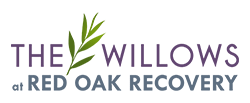Cocaine use can take over a person’s life. Due to its addictive nature, it is important to recognize the signs of cocaine addiction. Call our women’s cocaine addiction treatment at 828.518.6941 today. The Willows at Red Oak Recovery® is here to help women heal from cocaine use and achieve the lives they deserve. Help is just a call away.
How Cocaine Works
Cocaine is a powerful central nervous system stimulant that works by inhibiting the reuptake of serotonin, norepinephrine, and dopamine. Since these 3 neurotransmitters are not being reabsorbed as quickly, the net effect is stimulation and excitability.
Cocaine also affects the reward center of the brain. The reward center is in the limbic system of the brain, consisting of the amygdala, the hippocampus, the hypothalamus, and other areas. The reward center of the brain responds to pleasurable activities by flooding the brain with dopamine and other neurotransmitters, creating a euphoric, pleasurable sensation. Normally, the reward center helps your mind associate beneficial activities such as sex or exercise with pleasure, but in the case of drugs like cocaine, the reward system plays a role in the development of addiction. Over time, users will develop a tolerance to cocaine, requiring larger doses to get high. The combination of reward and tolerance makes cocaine very addictive.
The rush and euphoric feeling from cocaine don’t last long, typically 1 hour or less. Afterward, users often experience feelings of:
- Agitation
- Depression
- Fatigue
- Paranoia
These sensations of letdown and fatigue are often referred to as a cocaine crash. Users using more and more need to seek out addiction therapy services.
Cocaine Addiction in Women
Cocaine addiction is a serious problem that affects all genders. However, the effects of cocaine use on the female brain can be different than those in males. Women are more likely to experience severe physical and mental health complications from cocaine use.
One reason for this difference is due to hormonal fluctuations during a woman’s menstrual cycle. Estrogen levels can affect how quickly the body breaks down cocaine, leading to a longer-lasting high and increasing the risk of overdose. Additionally, women may experience more severe withdrawal symptoms due to estrogen’s influence on dopamine levels in the brain.
In addition to these biological factors, there are also societal pressures that contribute to women using cocaine. Many women turn to drugs as a way to cope with trauma or stress, as society often expects them to be caretakers and suppress their own emotions. This can lead to a dangerous cycle of self-medication with cocaine.
The Symptoms and Signs of Cocaine Addiction
As a person becomes addicted to cocaine, their actions will revolve around getting more of the drug and getting high. When these symptoms are noticeable, it’s time to enter drug rehab for women. Common cocaine addiction symptoms can include:
Psychological Symptoms
- Obsessing about cocaine
- Financial problems because of borrowing or stealing money to get cocaine
- Problems at work, school or in relationships
- Less attention to personal hygiene
Physical Symptoms
- Enlarged or dilated pupils
- Runny nose or nosebleeds because of snorting cocaine
- Extreme self-confidence
- Mood swings
- Nausea
If you recognize these signs, the time to reach out for help is now.
Symptoms of a Cocaine Overdose
Another sign of cocaine addiction is one or more episodes of a cocaine overdose. The signs of a cocaine overdose include:
- Irregular heartbeat
- Dangerously high blood pressure
- Psychosis
- Tremors
A cocaine overdose is potentially life-threatening, so seek immediate medical care. If necessary, a physician will treat a cocaine overdose with benzodiazepines, to counteract the cocaine.
Our Cocaine Addiction Treatment
Cocaine addiction treatment involves behavioral therapy and rehabilitation programs. We offer a cocaine addiction treatment program for women. We offer an individualized treatment program and dual diagnosis treatment. Dual diagnosis care targets both the addiction and underlying mental health issues.
Because our program is designed around the needs of women, you can feel at ease sharing your experiences and learning from other women recovering from addiction. Our goal is to equip you with the tools and support you need to achieve lasting recovery from cocaine addiction.
Call The Willows at Red Oak Recovery® Today
If you are seeking addiction care in North Carolina, give us a call today at 828.518.6941 or reach out online. We’re here for you when you or a loved one experiences the signs of cocaine addiction. Everyone deserves to heal from the symptoms of cocaine addiction.






